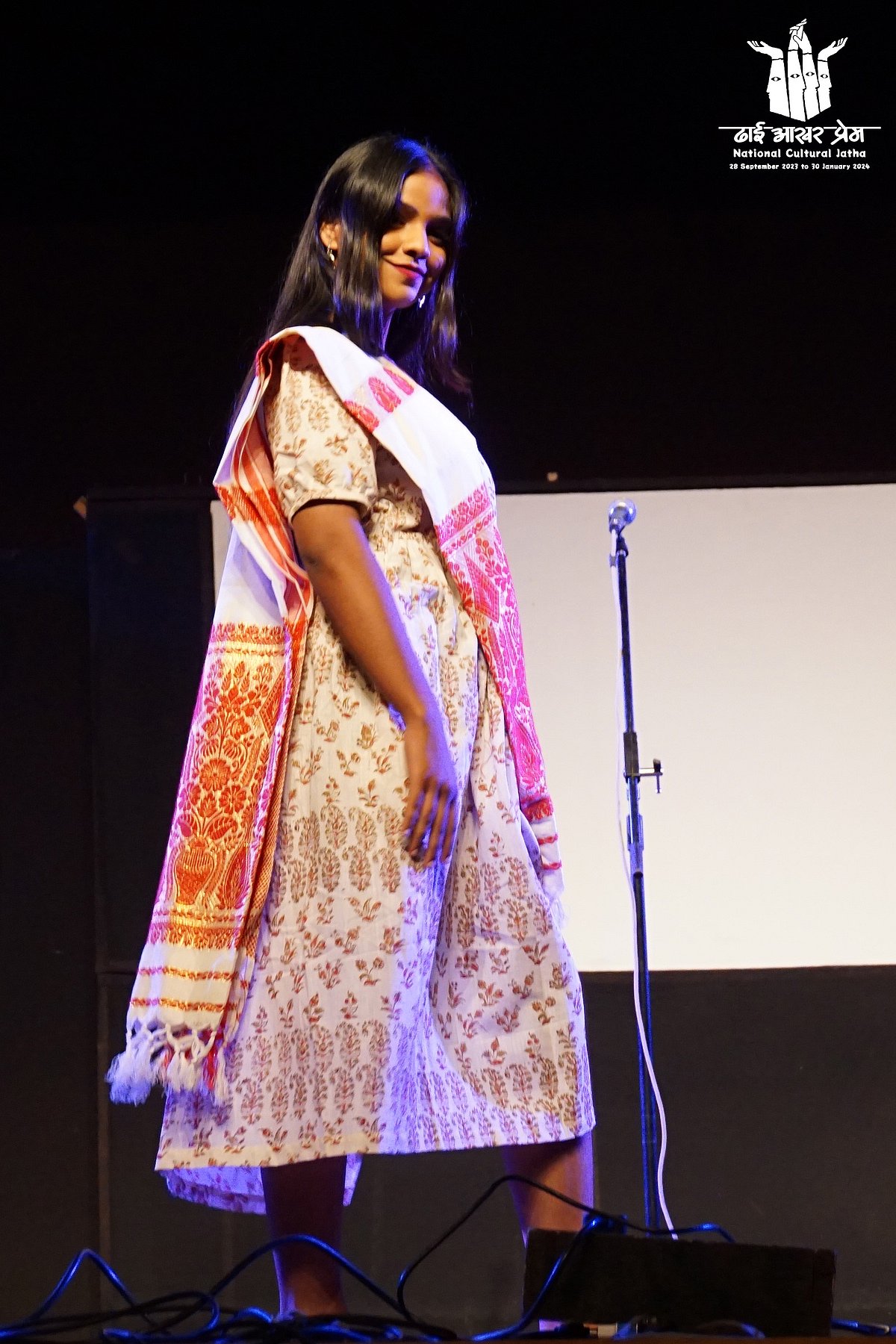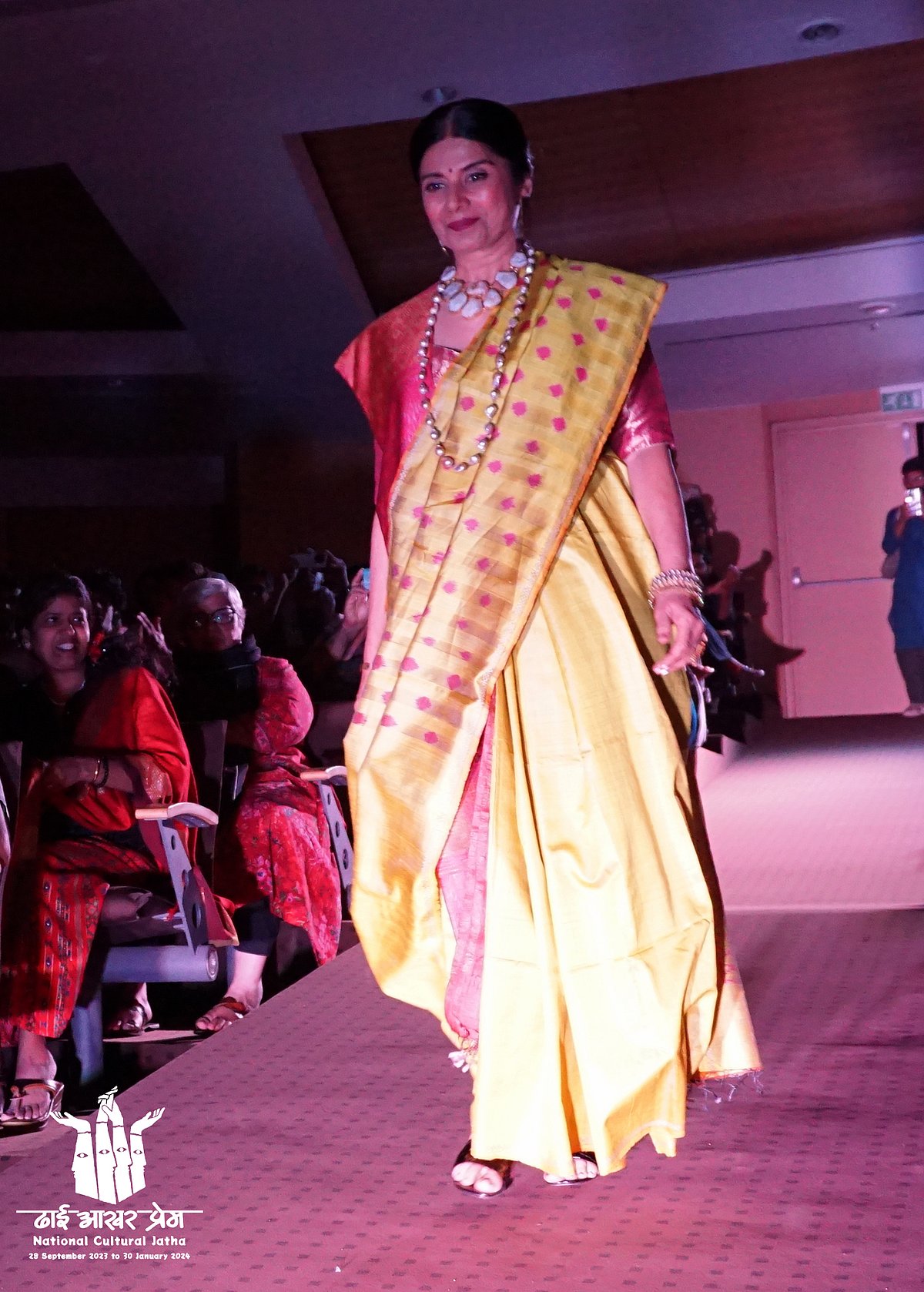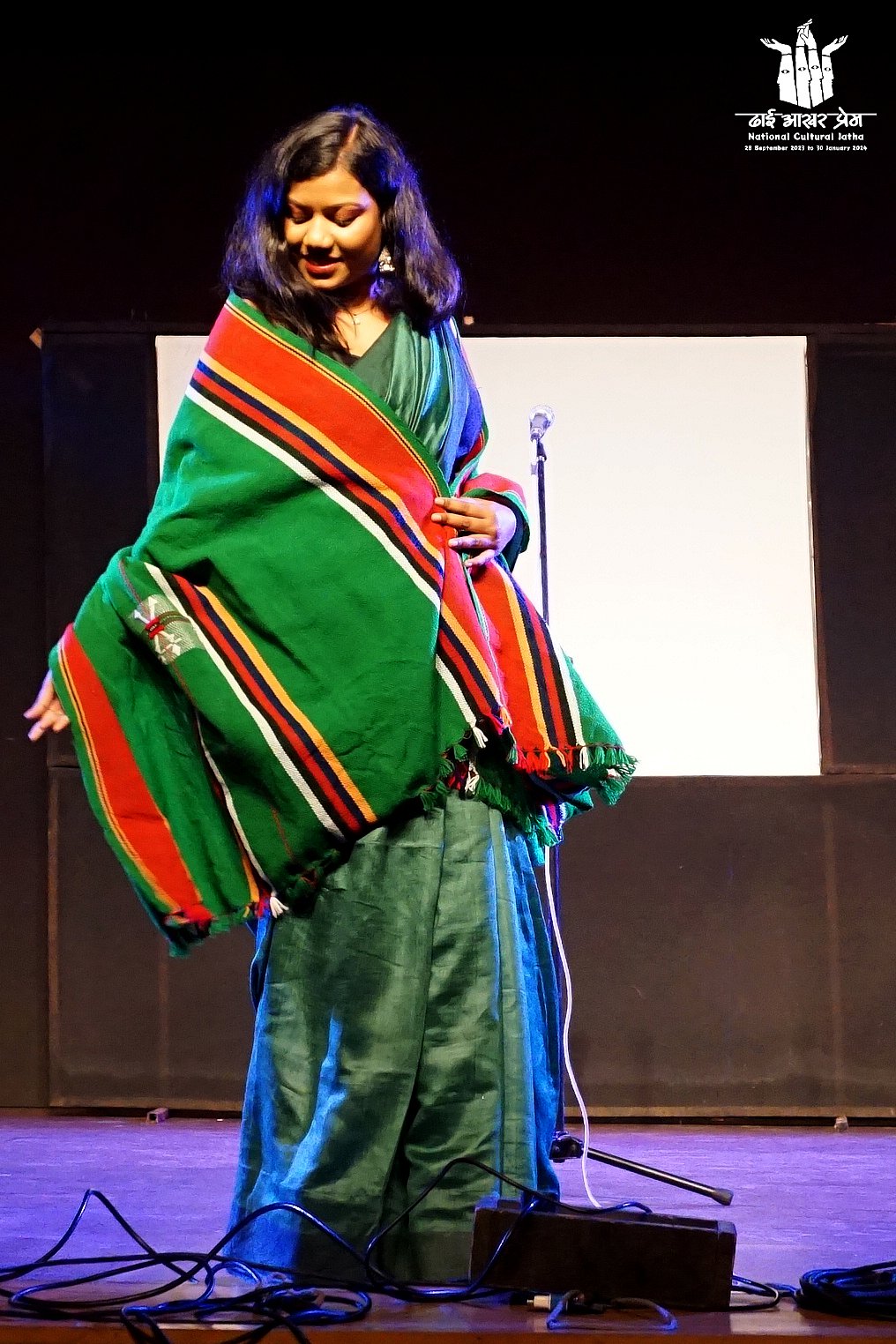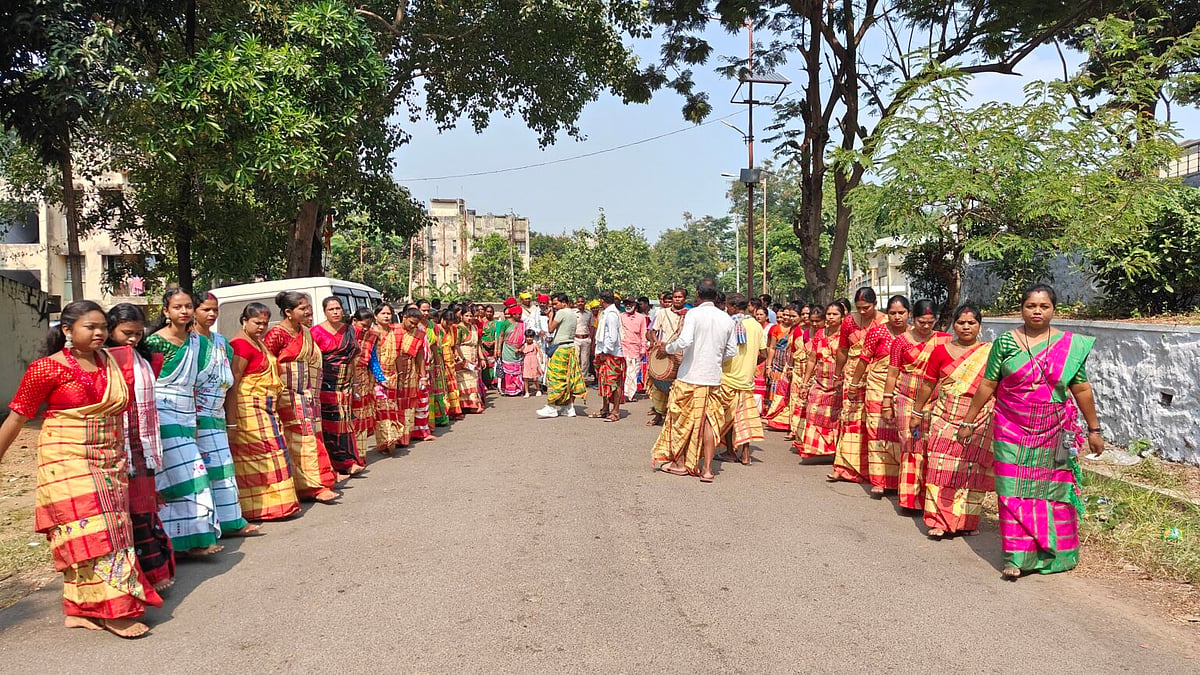'Dhai Aakhar Prem': 2.5 letters that hold a world of love
The story of a unique cultural troupe currently touring the country on foot

These days, a unique troupe is touring the country—the Dhai Aakhar Prem Rashtriya Sanskritik Jattha, a national level cultural renaissance group.
Bringing cultural activists, litterateurs, journalists, intellectuals and youth together on a common platform, this troupe is a movement for peaceful coexistence, love, harmony and brotherhood. An initiative started by the Indian People’s Theatre Association (IPTA), many organisations have joined hands to form the troupe.
The idea initially took off at Alwar, Rajasthan on 28 September 2023, the birth anniversary of Bhagat Singh, and subsequently spread across the country. A sequel to last year’s one-and-a-half-month-long journey across five Hindi-speaking states, it will culminate in Delhi on 30 January 2024 to coincide with Shaheed Diwas (Martyrs’ Day), in memory of Mahatma
Gandhi.
The success and socio-political relevance of the first ‘Dhai Aakhar
Prem’ yatra gains new resonance in its extended nationwide avatar.
Love and truth in response to hate and falsehood is the central theme of the yatra.
With lies prevalent all around us and hate tightening its vice-like grip on all of us, truth and love become even more significant. The motto, ‘Dhai Aakhar Prem’, is a fragment from Kabir’s vani (couplets).
Kabir showed us that social give-and-take would be impossible without the two-and-a-half letters that form the word ‘prem’ (love). The immense value and vision held within these two-and-a-half letters is being given cultural expression by the troupe.
A tradition of cultural activism
About eight decades ago, cultural activists had embarked on a similar yatra in Bengal. The goal was twofold: to raise consciousness about the Bengal famine and the country’s freedom.
Artists had travelled the length and breadth of our land to make people aware of the disaster and to motivate them to help victims. Those artistes’ songs, plays and dances created an atmosphere of resistance to the horrors of a man-made famine. People helped the victims generously, wholeheartedly.
Cultural entourages that create mass awareness are the bedrock of IPTA. This troupe takes that legacy forward.
Today, when constitutional values of liberty, equality, justice and fraternity are being severely eroded, there is a crying need to convey their importance and save them.
Divisive, lie-filled, hate-generating politics is a direct assault on these values, pushing society towards a violent and toxic masculinity. The common people are being pitted against each other.
‘Dhai Aakhar Prem’ stands in opposition to all of this.
Renowned theatre artist and national president of IPTA, Prasanna says, “In order to counter these negative tendencies, we chose Kabir’s message of love. We also chose the gamchha (a thin towel) to represent the labour of loving hands, a symbol both of Kabir’s words and our oneness, of our troupe’s philosophy and strength.”

IPTA’s acting president Rakesh Veda says, “To journey is to achieve momentum, but there have always been people interested only in the journey of pushing society into the decadent pit of the past.
"Pride in the past, nation, military power, religion and one’s own identity invariably gives rise to hatred and contempt for the other. The result is revulsion and violence.
"To respond to hate and violence in the language of hate and violence will only encourage them further.
"Therefore, to encourage, instead, the tradition of tolerance, love, harmony, change and social justice as expounded by Buddha, Kabir, Raidas, Nanak, Gandhi, Bhagat Singh and Ambedkar, we started a cultural dialogue with the common people through the ‘Dhai Aakhar Prem’ cultural troupe.
"On one hand, this troupe carries the message of love and on the other it attempts to underline the dignity of human labour, ecological balance and social justice in the form of the symbolic gamchha.
"It is clear that the Indian Constitution is a living document encompassing all these values which are currently the most besieged.
"The journey of love is a journey of sustained dialogue.”
Love and labour are the two themes the yatra stresses. Groups speak of reinstating respect for manual labour and assigning it due importance in the production process
A collaboration with literary and cultural organisations
Leading progressive cultural and literary organisations are participating in this historic campaign.
At the national level, Janavadi Lekhak Sangh, Jan Sanskriti Manch, Dalit Lekhak Manch, Jan Natya Manch, and the Progressive Writers Association have joined hands with IPTA. Apart from these, there are many local partners in every state.
From north to south, from east to west, more than a hundred organisations have joined in.

The appeal issued by major organisations states: ‘This troupe is a celebration of mutual love, peace and harmony. It is an urgent initiative by us cultural activists and responsible citizens in response to the sense of hate and mistrust that pervades the world.’
In addition, artists and intellectuals such as Anjan Srivastava, Manoj Bajpayee, Babil Khan, Sutapa Sikdar, Anurag Kashyap, Anamika Haksar, Tushar Gandhi, Sulabha Arya, Rajendra Gupta, Tigmanshu Dhulia, Probir Guha and Swananda Kirkire have added their messages to the mix.
Raghubir Yadav has sung songs, while many poets have been writing poems and painters painting pictures for posters.
Truly, it has become a journey of artists from every genre. This is its strength.

Routes chosen with care
The Dhai Aakhar Prem Yatra set out across the country not as a monolith but as many in one, moving within different states. Every state has its own unique cultural group; in many states there are several groups going into different areas.
Till date, the yatra has reached the people of Rajasthan, Bihar, Punjab, Uttarakhand, Odisha, Jammu and Kashmir, Uttar Pradesh, Karnataka, Jharkhand, Tamil Nadu, Andhra Pradesh, Telangana and West Bengal. The routes are not random—they have been chosen with care, so that each path has meaning.
In Bihar, the path sought to retrace Mahatma Gandhi’s relationship with Bihar. Thus, the group travelled to those villages where Champaran Satyagraha established Gandhi as Satyagrahi Gandhi.
It visited places associated with Gandhi, it searched for memories of Gandhi amidst the people, and worked to link them once again with Gandhi’s truth and love.
In Uttar Pradesh, the yatra got close to the shared heritage and culture of Bundelkhand.
It made an attempt to reconnect with those places that are related to the syncretic Ganga–Jamuni tehzeeb.
It also renewed ties with those important figures who had spread the word of peace, love and harmony in society; those sites related to freedom fighters who sacrificed all they had for the country.
A padyatra that reinstates the value of manual labour
The most distinguishing feature of this yatra is that participants travel on foot.
This becomes a means to establish direct contact with the common people. To sing to them, to listen to them. To perform inspiring plays redolent with the smell of the earth that gave us our saints and revolutionaries. To walk on the soil, to be of the soil.
Love and labour are the two themes the yatra stresses.
Groups speak of reinstating respect for manual labour and assigning it due importance in the production process.
An intrinsic part of rural lives across the country, the hand-woven gamchha has emerged as a powerful symbol of manual labour. Cultural activists within the groups not only wear hand-woven gamchhas made by local artisans, they also make the people wear them!
Gamchha-themed fashion shows have also been organised at many places. In these inventive ways, this humble garment has foregrounded the debate on the importance of manual labour.
Rich experiences and revelatory lessons
At the conclusion of the Bihar segment, litterateur and troupe participant Satyendra Kumar writes, ‘The Dhai Aakhar Prem cultural troupe taught all participants many new lessons. The journey helped me to understand aspects of my multicultural, multilingual country.
'It taught us how our society survives in different circumstances and stays united even in the most difficult times. It revealed that poverty is still prevalent in villages and development is still a dream. How people maintain unity at the local level despite efforts to shatter it.’



He further writes, ‘This campaign understands and celebrates the importance of varying ideas of India as it moves forward with its message of love, fraternity, equality, justice and humanity. Various schools of thoughts are assimilated to promote unity, integrity and love for the country in spite of ideological disagreements. It is a festival of mutual love, peace and harmony.’
Cultural activist Hariom Rajoria shares his experience of one of the troupes in Madhya Pradesh: “This cultural trip was carried out with minimum resources and maximum cooperation.
"Between Indore and Badwani, we visited many villages and towns on and near the banks of the Narmada. During the journey, we saw both desolation and rehabilitation. We listened to many people and they listened to us.
"When women participate in movements on an equal footing, their fearlessness, alertness, self-confidence and expressiveness is something to behold.
"We also came across examples of practical knowledge gained from such movements.”
In Rajasthan, which is where the Dhai Aakhar cultural yatra started, the march passed through Alwar city and surrounding historical villages.
Arpita says that the trip to Rajasthan was exemplary, and became the basis of extending the journey to other locations. The core of connecting and communicating with all was first glimpsed in Alwar. Villagers came together to make arrangements for the entourage.
“We also met many important local saints, and noble souls who professed communal harmony,” she adds.
IPTA general secretary Tanveer Akhtar says, “This cultural troupe is unique in many ways. Not only is it linking up cultural activists, it is creating a lively relationship between them and the common people.
"An important aspect of the journey has been the fact that everywhere it’s the local people who arrange accommodation, food and water for the troupes. Many girls and young artists are participating. This jathha is going to write a new chapter in the world of Indian culture.”




Follow us on: Facebook, Twitter, Google News, Instagram
Join our official telegram channel (@nationalherald) and stay updated with the latest headlines




